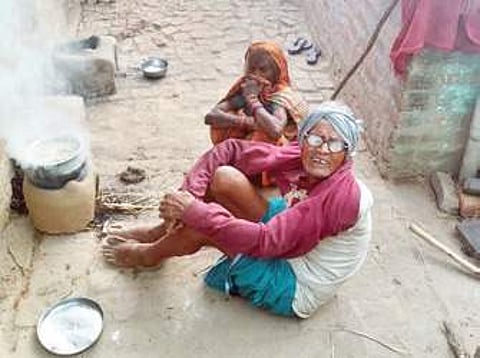

KHAIRMA: When Sita Devi’s daughter-in-law fell sick all of a sudden in the middle of the night on Nov. 11, it was a herculean task for the family to get her treated. Due to the demonetisation three nights earlier, the Rs 5,000 cash she could scrape together in old notes was worthless for the urgent purpose at hand.
“Be it autorickshaw drivers or the medicine shops in Jamui, no one is accepting the old notes even if a person is dying in front of their eyes. It is misery and chaos all around for us. I had never witnessed such terrifying scenes in my 55 years so far,” said Devi, wife of a farm labourer belonging to a Dalit community in Jamui district, the hotbed of Maoist activities in southern Bihar.
It did not help that hospitals in Jamui are just 7 km from her village and the road is good. Even her neighbours were in no position to help. “For the first time in my life, I realised that cash is the asli raja,” says Sita Devi, mother of three grown-up sons and a college-going daughter.
The morning after her daughter-in-law’s condition stabilised despite delayed treatment – made possible by money borrowed from neighbours – Sita Devi’s husband Gopal Paswan stood in long queues at several banks in Jamui. “It is difficult to lose an entire day’s work during the paddy-reaping season to get a few Rs 500 notes exchanged. The queues were unendingly long and then half the queue returned disappointed as the banks ran out of cash,” said Gopal Paswan.
Many villagers have accounts in the local branch of the Bihar Kshetriya Grameen Bank, which does not offer ATM cards. Even this branch has long queues of people standing with forms in hand to withdraw money. Few households in this village have a TV and almost none subscribes to a newspaper. So the flow of information about demonetisation was restricted and gave scope to wild rumours.
“The first week was terrible. It was as if there was some sort of an undeclared crackdown by the dreaded Maoists. The situation has not improved much yet,” said Chandrika Sao, a farmer in Khairma village. He gave up his morning tea after failing on day one to get his four Rs 500 notes exchanged at the bank. “Many villagers have stopped buying milk since the currency ban,” he says.